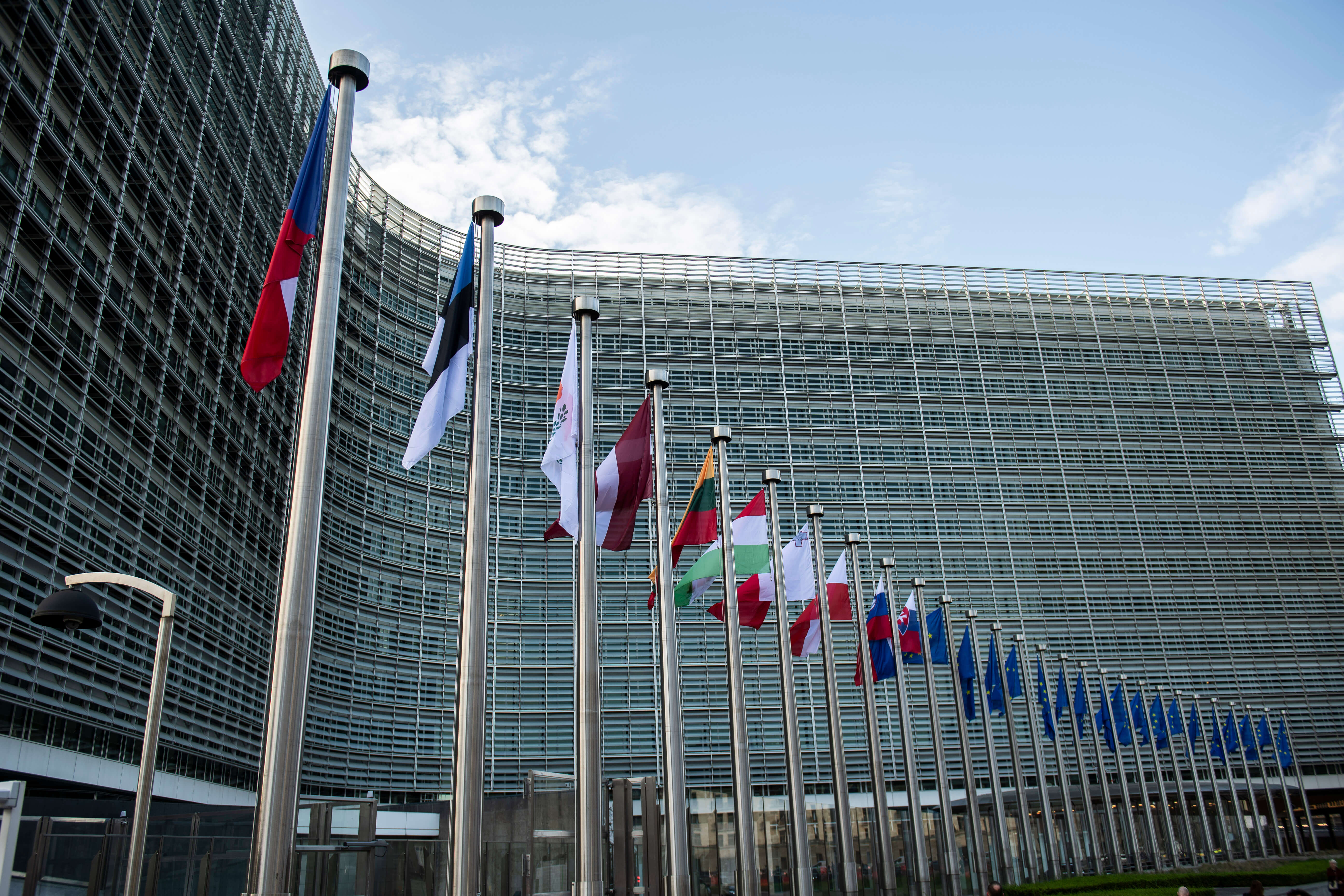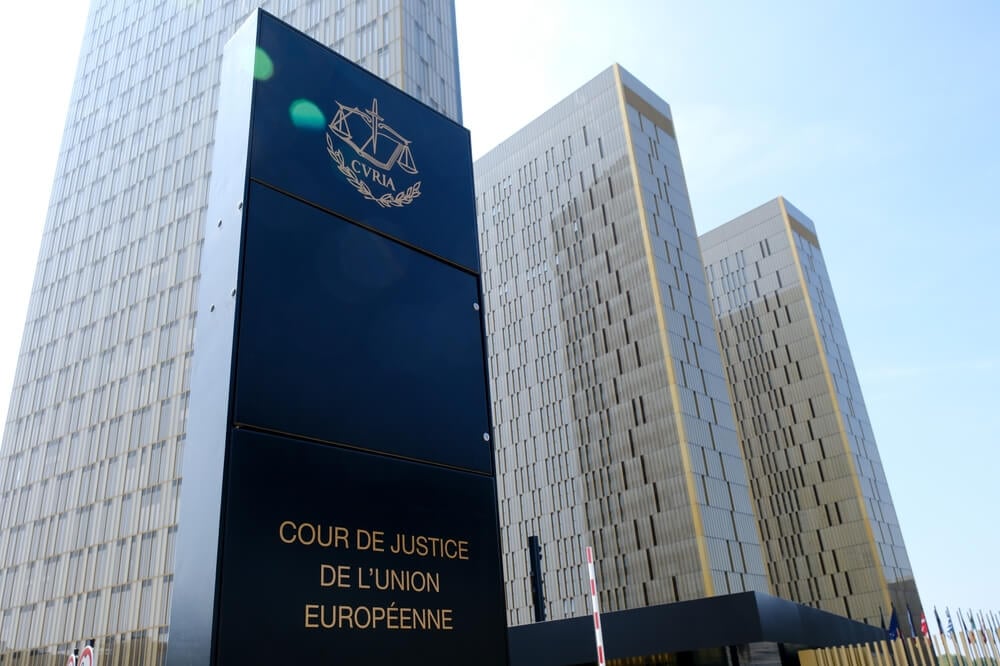On 10 September, the EU’s General Court in Luxembourg ruled in favour of Meta and TikTok in a dispute over the way the European Commission calculates the supervisory fee provided for by the Digital Services Act, better known as the DSA.
The Court formally annulled the Commission's decisions on the level of fees for 2023 but found that they remain valid until a new methodology is adopted.
The Commission was given a period of twelve months to revise the calculation methodology, and the platforms were sent the message that the European regulation is not contested in its essence but that it must be implemented with legally clear and transparent procedures. To understand the scope of the ruling,
it is important to know what the fee is all about. The DSA mandates that the Commission collect annual supervisory fees from "very large online platforms" and "very large online search engines" (VLOPs and VLOSEs), i.e., services with at least 45 million monthly users in the EU, to cover the costs of supervision, safety checks, and enforcing transparency obligations.
The text of the regulation also provides for a cap – the amount may not exceed 0.05% of the total revenue of an individual service, which increases the symbolic weight of the compensation even before the ruling itself.
However, the way in which the specific sum is calculated is left to the Commission's separate legal acts, including the formula for the "average monthly number of users" and the allocation of the total supervisory costs to the individual services.
The Court found this part to be insufficiently clear and coherent.
Avoiding a regulatory gap and financial chaos
The Court accepted Meta and TikTok's objections to the methodology. The right of the Commission to charge a fee is not disputed, nor is the concept that those subject to supervision pay for it; however, the method of calculating this fee is disputed.
The court concluded that it was necessary to define more precisely how the "average monthly user" is to be measured, how total costs are to be allocated and how comparability between different services can be ensured.
The EU Commission has one year to adopt a new methodology
At the same time, the ruling explicitly states that there is no automatic reimbursement for 2023, but that the Commission has one year to adopt a new methodology and new individual decisions that will be valid in advance.
This balance, cancelling while maintaining the effects for a short time, is common in the practice of the EU Court when it wants to avoid a regulatory gap and financial chaos while still forcing the institution to correct the procedure.
A reputational test for the regulatory authority
The Commission sees this as a blow to the DSA's credibility, but not its defeat. The regulation remains in place, the obligations of the platform remain, and the fee itself remains an instrument.
The change is that Brussels will need to "open the hood" and provide a detailed explanation of how the costs were incurred, the criteria used for their distribution, and the reasons behind the specific measurement of user numbers.
For the regulatory authority, which has built up a reputation as a global arbiter on the digital market in recent years, this is also a reputational test.
If it delivers a clearer, verifiable and legally sound formula in twelve months' time, the decision will retrospectively look like a useful "levelling of the rails".
If it fails, it sets a precedent, and other important DSA mechanisms can be destroyed in the same way—not at the policy level but at the procedural level.
Meta and TikTok have won cost predictability and reduced regulatory risk rather than a permanent exemption from liability
For large platforms, the message is twofold. The first level is clear: investing in legal teams in Brussels and Luxembourg is worthwhile, as even the most ambitious regulations can be stalled if they are not properly "ironed out" in implementing rules.
The second level is more subtle: the Court has not questioned the very logic of industry funding monitoring. If the Commission delivers the new formula, the bill will come due again.
Therefore, the realistic outcome is "It is better to pay with clearer rules" than "We will not pay." This means that Meta and TikTok have won cost predictability and reduced regulatory risk rather than a permanent exemption from liability.
Beyond a legal dispute
The ruling does not remain within the framework of a legal dispute but also opens up political consequences.
The European Commission has established the DSA as a pillar of the "European model" of digital governance.
The ruling now raises the practical question of financing this model. If the supervisory fee can't be calculated non-transparently, the options are to create a clearer and more reliable algorithm (with more input from the industry and member states) or to shift more of the costs to the EU budget.
Secondly, it opens up political control of member states over the annual costs of digital supervision and may slow down the Commission's capacity building.
The first requires the professional development of a methodology that is both economically realistic and legally clean, which in practice means more transparent parameters and less discretion.
The court did not reject the fee but instead asked for proof of how it was calculated
It is also important how the "average monthly user" should be measured. This figure seems simple, but it determines the fee and compares dissimilar services.
Social networks function through the constant production and exchange of content; search engines answer search queries; and digital trading platforms facilitate purchases and sales.
Therefore, the monitoring costs per user are not the same for all of these services. If the number of users is only measured by login or visit, and the intensity of use or the risk of harmful content for which DSA exists is disregarded, there is a "levelling" without reference to the actual monitoring costs.
If, on the other hand, a more complex parameter with weights is introduced, the form must be verifiable and the same for everyone.
This is precisely where the ruling falls short: the court did not reject the fee but instead asked for proof of how it was calculated.
The need for verifiable methods
What does the ruling mean for the rest of digital regulation in the EU? Where the EU already has detailed technical legislation in place, such as in the area of data protection, there is less room for similar disputes.
DSA is new and relies on a combination of policy principles and subsequent technical rules. It is now apparent that the second level needs to be more cautious.
 The EU is judging by the rules and is willing to "revise" its own laws, which strengthens confidence in the rule of law
The EU is judging by the rules and is willing to "revise" its own laws, which strengthens confidence in the rule of law
This is also a broader message to Brussels ahead of the next wave of regulations, from the AI Act to platform-to-business rules and competition investigations: less reliance on general principles and more on quantifiable parameters and verifiable methods.
The industry, especially the American giants, knows how to fight court cases, which will be the most expensive part of the process.
The financial markets immediately included the ruling in their valuations. For companies, these rulings remove some of the uncertainty and make it easier to plan for compliance costs. For investors in Europe, the ruling has a dual significance.
On the one hand, the EU is judging by the rules and is willing to "revise" its own laws, which strengthens confidence in the rule of law.
On the other hand, the regulatory risk in the digital sector remains high, as the rules change spontaneously and only become stable after a judicial review.
In the long term, this leads to something that investors value more than any slogan – predictability.
Equal treatment for all platforms
Now comes the technical but politically sensitive work in Brussels. The new methodology must take three elements into account.
The first element is a clear user definition, robust to various business models and impervious to trivial interface design abuse.
The second is the link between the total cost of the Commission and what it charges, with internal controls and external audits.
The third is the "correction" mechanism if, in a given year, costs turn out to be higher or lower than planned. This may seem too technical for a public discussion, but the ruling has shown that the technique is crucial.
For the reader looking for the larger significance of the story, the key lies in the following.
The EU has not abandoned the idea that large platforms bear the costs of supervision
The EU has not abandoned the idea that large platforms bear the costs of supervision.
The court ruled that charging these costs requires a full explanation of the calculation and equal treatment for all platforms.
This is precisely the European model's defence. If the Commission shows, in the next year, that it understands how to translate political will into a precise and verifiable calculation, it will be able to maintain its effectiveness and legitimacy.
If it becomes overly involved in disputes over definitions and allocations, it risks turning the most ambitious part of the DSA into a protracted administrative maze game where industry buys time and the public interest waits for another round.
Avoid paying for the mistakes of others
What practical developments are there to anticipate in the upcoming months?
The Commission will first release a draft methodology for consultation, likely with greater input from national regulators and independent bodies involved in user measurement and data verification.
 The ruling in the Meta and TikTok v Commission case does not change the course but rather corrects it
The ruling in the Meta and TikTok v Commission case does not change the course but rather corrects it
Platforms will want to add elements to the calculation that better monitor actual risk to avoid "paying for the mistakes of others" or paying more due to the specificities of their services.
Member states will closely monitor the budget line. Brussels will have to reconcile three objectives at once: the fee is predictable and legally certain, it covers the real costs of supervision, and it does not create hidden protectionism against smaller European companies. The real politics of this ruling lie in this triangle.
The ruling in the Meta and TikTok v Commission case therefore does not change the course but rather corrects it.
Instead of a broad discussion of the pros and cons of European rigour, there is a very specific invitation to develop supervisory standards into a formula that can be tested and defended in court.
For Brussels, this ruling serves as an invitation to elevate technical standards to the level of political importance.
It is a reminder to the industry that European regulation is not weak, but that it must be precise.
The final outcome will depend on whether the new methodology clearly justifies every single figure in the calculation.
If successful, DSA will acquire the pillar it has been lacking – not ideologically, but in terms of calculations. If not, the next lawsuit already has a blueprint.